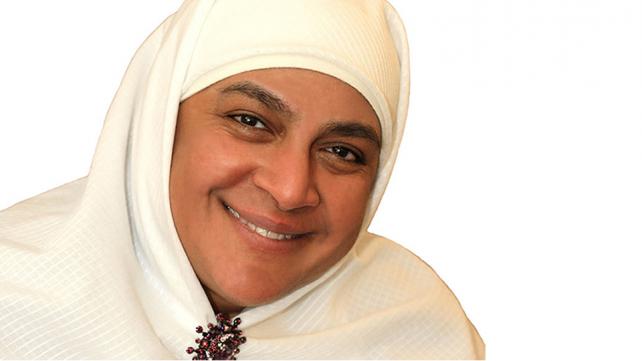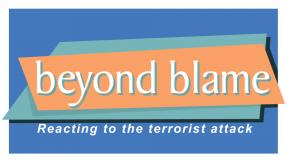
In 2013, the New York Public LIbrary listed Rukhsana Khan's book Big Red Lollipop as one of the 100 Great Children’s Books in 100 Years. The Toronto-based Muslim writer's other works include the award-winning The Roses in My Carpets, Muslim Child and Dahling If You Luv Me Would You Please, Please Smile?. The interview below was conducted by Sound Vision in the late 1990s.
Why did you begin writing books for children?
This is a tough question. I actually began writing books in my teens. I wrote a novel when I was fourteen. An adventure story about a Muslim gypsy girl. I wanted to write a story that had, at its core, Islamic principles. A girl who was Muslim and proud of it. Because all the stories I read never addressed that. And if there was a Muslim character, it was more like a caricature. Some odd character, not fully fleshed out at all, usually a villain in the story or there to add exotic flavoring. None of the main characters were ever Muslim, and I felt neglected and left out.
As I got older this negative portrayal of Muslims made me more and more angry and I felt that someone should do something about it. Someone should show these non-Muslims that we have reasons for thinking and believing as we do. That we are logical people and not what they think we are.
Then I started writing for some small Muslim newsletters. The editors often asked me to write the sister's page but I always asked to write the children's page. That's where I could tell stories. Some of the stories were very well received and a number of people encouraged me to write to get published. One of the picture books I'd written as a child of sixteen had received a personal rejection from a New York publisher. I had always saved that letter. In 1989, when I was transferring some files I came across that letter again, and I realized that the editor was actually telling me that I had talent but I needed maturing and growing up before I could properly write about children. I decided to pursue my latent dream of writing for children.
I worked hard, attended courses and conferences and workshops, and faced so much rejection. And at this time too, the terrible book The Satanic Verses came out. I was so angry. Again I wondered why this stupid man could get his blasphemy published but we Muslims couldn't get anything good about Islam published. And I kept expecting someone to come forward and address these issues. Make sense of it and fix the image of Islam in the media.
It took me nine long years and many, many rejections to get published, but alhamdulillah I have five books under contract now.
In a way, the reason why I write books for children is because nobody else is. Nobody is saying the things we need to say, so I'm trying my best to.
What inspires you to write?
Inspiration comes from many different places. Usually from something that has happened in my life to trigger a story idea. I try to write stories that children can relate to, that might have happened to them at some point. I wrote a story about a kid who prays Fajr in a grumbling mood, who breaks his wudu when he farts but who doesn't want to make a fresh wudu and pray again. I remember as a child how many of us would try to hold it in when we prayed. It was funny, and I think children would find it funny and relate to it.
I wrote a story about a couple of children who buy candy that has haram things in it and he's in a dilemma of what to do. Should he throw it out and waste the money he spent or eat it even though he knows it's wrong. This is the kind of thing that kids can understand because it happens all the time.
I wrote Bedtime Ba-a-a-lk, because one morning when I woke up for Fajr I couldn't get back to sleep. I tossed and turned and finally started counting imaginary sheep, but one sheep looked at me funny, like "Who are you? Why should I listen to you?" And I started laughing so hard I forgot about sleeping. It was funny that this sheep, that I'd created in my imagination, should balk at doing what I wanted it to, and then I thought, that in a way, this is what we do with Allah. He has created us, but sometimes we balk at what He tells us to do. And so I included a bit, where the little girl tells these sheep that if they don't do as she says, she can make more sheep who will obey and be good, who will jump over her fence and do as they're told. My editor wanted to change this line to make it sound more natural but I refused. I wanted it left as it was. I told her there was a joke in there. She said, "Well I don't get it." I said that she wouldn't get it. It's a Muslim joke. Then I explained to her that Allah says something similar to mankind in the Quran.
Many Muslims have picked up on the joke. They have realized what I am trying to say in that story. It is a very important story to me but because it's funny a lot of Muslims think it's not very Islamic.
Do you include elements from your own life experiences in your stories or are they brought to life primarily through your imagination?
Like I said before, a story often begins from something that has happened in my life, but by the time the story is finished, it's completely different. In my forthcoming book, Muslim Child I wrote a story about a little orphan boy who is always being picked on by one teacher. That never happened to me. But at a school I attended over the last summer, I saw a boy who was labeled as a troublemaker. Who was often picked on and I felt sorry for him. I knew that no matter what this little boy did, it would be viewed with suspicion because of his reputation. So I wrote about an orphan boy just like that.
There is hardly any resemblance between the boy in the story and this boy I knew. But I tried to remember what it felt like to be picked on, to feel like no matter how good you are people aren't going to change their opinion of you, and I wrote the story from that.
So the answer is that the feelings I bring to my stories are things that I have felt at one time or another, but the rest of the story is primarily from my imagination.
How has the response been, both secularly and non-secularly?
I try not to think of response in terms of secular and non secular. I write stories that I hope anybody, regardless if they're religious or not will identify and appreciate. But sometimes I am surprised by the secular response to some books that are deeply Islamic.
The Roses in My Carpets is a very Islamic story. I have the boy praying Fajr, Zuhr and even nafl. Salat is an important aspect to the story and so are many Islamic principles. Sometimes it surprises me that non-Muslims seem to love the story as much as Muslims do. It is the most blatantly Islamic story of mine. My Editor receives thousands of manuscripts every year. She said that The Roses in My Carpets gave her goosebumps. She was trembling when she finished reading it. And when she sent it to the American Publisher, the owner of Holiday House, that lady said that my writing was 'magnificent'. This surprised me. That such an Islamic story could reach non-Muslims.
What are the difficulties in writing for children?
Children are very hard to write for. Harder than adults in some ways. They are very discriminating. If they don't like something they say so. And if you are boring them, they'll get up and leave. They're attention spans are very short. You have to grab their attention immediately. Usually by the first sentence, or they'll put your book down.
But the thing is that children aren't the ones with the money to buy your books. The adults, the parents or teachers are the ones who buy children's books and a children's author must appeal to them as well.
Children love humor and nonsense, but your stories must have much more than humor or nonsense they must have an underlying message or lesson or else the adult will not bother purchasing the book. But in order to appeal to the child, the message must not be superimposed on the story but must be something the child comes to naturally, because of the story.
And the worse thing about writing for children is that other adults tend to look down on what you do. They think that because it's a children's book it must be easier to write. After all it's only a few hundred words, or a thousand words at most. But that is deceptive. Because you have so few words to work with, every word must count. Every word must evoke the mood you intend for the story and drive the plot forward.
I knew one doctor who told me that she was thinking of writing a children's book. She said if she went away for two weeks she'd come back with a novel. I just smiled and didn't say anything. There was no point. She then went on to say that I should be writing a story every month. Again I smiled but didn't say anything. People don't realize that it just isn't that easy.
Do you write specifically for children of Muslim families or do you write for all children? - If both, is that difficult to do?
Actually I don't think of children when I'm writing. I write what appeals to me. If I like it, then I think that children will like it too. If it makes me laugh or cry, feel happy or sad, then I'm pretty sure it will make others feel that way too. I think of most of my stories appealing to all children because the emotions and feelings I deal with are feelings that all children can relate to. And I'm very hard on myself. It has to be the very best before I try to get it published. I have hundreds of stories that didn't work in one way or another. People just don't know about them.
How do you approach Islam with children of North American Muslim families?
Islam is usually in the background. It is like the paper you write the words of the story on. The words might be the story but without the paper you wouldn't be able to read them. It is the context in which the story is written. In The Roses in My Carpets I don't even mention Islam. The boy and his family are obviously Muslim, it's so obvious I don't mention it.
In my other stories, Islam is always taken for granted. If you think of it, you don't go around thinking all the time, "I am a Muslim." You just know you are. And all types of problems and interesting happenings arise because of that fact.
Has it been easy to find secular publishers while keeping and Islamic focus in your writings? Are secular publishers hesitant to support you if they see direct reference to Islam in your stories?
In one word, yes. I started out sending generic stories out to publishers. Stories about children who weren't Muslim and stories that had no overtly Islamic overtones to them. The Publishers quickly rejected them. They had lots of stories like that. And amazingly the climate of the publishing field has changed over the time it took me to learn my writing craft.
When I began writing, publishers were very leery of ethnic authors. They just didn't think they would sell. You were less likely to be taken seriously by an editor if your name was ethnic. I wrote anyway. Within ten years the trend in publishing has reversed. Many publishers are actively looking for stories about other cultures. Not because they're more tolerant or open-minded but because schools and libraries, their primary customers, are demanding books that deal with other cultures. Schools need material that reflect the children that attend the schools. There is a gap in publishing when it comes to Muslims and Islam. Publishers are trying to fill that gap.
Publishing is a business like any business. A publisher will not commit to a book unless they think it will sell. At one point I thought publishers would be hesitant in supporting me if they saw a direct reference to Islam in my stories. That's the way we are led to believe. But as long as the reference to Islam is crucial to the story, if it fits and is not being superimposed on the story to make a point, then publishers have no problem with Islam in stories. I thought publishers would want to cut out the prayers in The Roses in My Carpets. I even said in my covering letter to one publisher that if they wanted to take that out, I didn't want to do that. The publisher called me up immediately upon receiving the manuscript and told me that the prayer wasn't an issue. As long as the story had appeal to others as well, as long as it was 'universal' in terms of theme, then Islamic references weren't a problem at all. (That publisher eventually rejected the manuscript but clearly it was not because of the Islamic references in it.)
Mind you I have had the story of Abraha and his march on Mecca rejected from a publisher because they thought it was too narrow in its appeal. They didn't think other children would relate to it that well, and that is understandable. But then it did fit into the collection Muslim Child.
What do you think is lacking in how we educate our children Islamically here in North America? How could Muslims in general, improve the area of Islamic education through the use of creative mediums?
We need to stop being so insular and defensive when it comes to being Muslim. We must take this society head on and show them that we are not what they think we are. That we are logical, rational people who believe in God and have good reason to. That the Quran is our backbone, our strength, and that we are indeed strong. We need to show them that we do not fear them; that what we have is infinitely better.
That our women have a voice, and intelligent minds with which to think. That they are not oppressed and silenced. That when Muslim women speak we have something to say. And we need to show them that Muslim men respect that and are not threatened by it.
What is lacking is that we are intimidated by the West and we don't need to be. They have nothing! Nothing to compare with Islam. They are organized, but this is something we can easily emulate. Take their tools, use some of their methods, the ones that are sensible and work, and show that Islam is a viable alternative.
We need to encourage our children in the arts. For too long we have bred generations of doctors and engineers and neglected the artistic talents of our community. Art reaches people on an emotional level. Don't underestimate the power of art. It shapes cultures and societies. It influences minds. It works on a subtle level that logic cannot reach.
Out of all your writings, which is your favorite story and why?
No question about it. The Roses in My Carpets is my favorite story. I had to think for a while to figure out why. It is my favorite story because it is about courage. The courage of a young Muslim boy against terrible odds. With his father dead he feels the burden of responsibility for his mother and sister. That burden weighs heavy on him. He almost resents them at times. He has been traumatized by his experience of the Afghani war, he has much to overcome and then his sister is hit by a truck. But only when her life is in danger does he realize how much she means to him. That he is not alone. He has Allah, to whom He prays and feels better afterward. He has a sponsor, who out of love for Allah, is paying for his sister's operation and doesn't know it. And he is not alone because he has his mother and sister. And he realizes that he relies on them also.
As Muslims we are a lot like this boy. We have been repeatedly attacked by the Western media and traumatized by it. It has made us insular and afraid. But we must break free of our fear, and support one another in the truth. And with each of our talents, we can make a difference.
==============
Rukhsana Khan is an Award Winning Writer For Children And Young Adults in Toronto, Canada








Add new comment